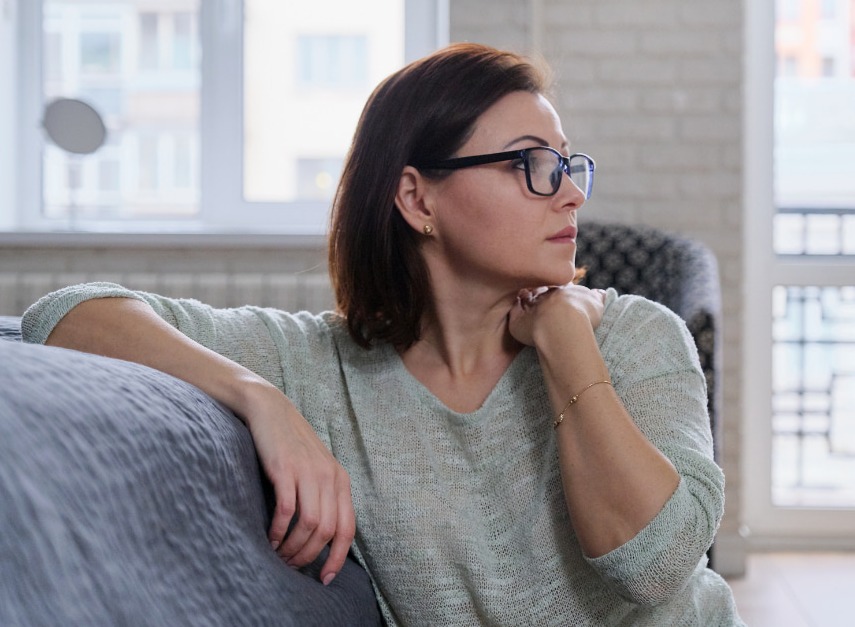Gynaecological violence: listen to women
Published 31 Jan 2019 • By Louise Bollecker

Whether you have a chronic disease or not, gynaecological examinations are a necessary and sometimes feared step for women. The year 2018 saw many voices speak out against questionable, offensive or dangerous practices, along with the #MeToo movement against harassment and sexual assault.
Gynaecological violence denounced
An intimate and regular appointment in a woman's life, the gynaecological examination is sometimes experienced as a source of embarrassment but can turn into a physically and psychologically difficult moment. The French general practitioner and writer Martin Winckler denounced this phenomenon in one of his books: "when a professional physically or verbally mistreats a patient and responds to her protests (or her signs of pain) with contempt, it is mistreatment, it is no longer a blunder". According to him, the most frequent form of abuse is the doctor's judgment of the patient's weight, her contraceptive choice, her sexual orientation, her willingness or not to have children...
>> 70% of patients have already lied to their doctor to avoid their judgment
"Silence, contempt, derision, threat, blackmail are commonplace, and they are unacceptable," continues Martin Winckler. You go to your doctor to be supported and understood, not to be judged. Violence sometimes goes beyond the psychological: many women have spoken out, particularly on social networks, to denounce deliberately brutal smears or vaginal examinations that are sometimes unnecessary and painful.
The situation is more or less regulated depending on the country: in the United Kingdom, strict rules of behaviour to which gynaecologists must comply have been laid down. Sufficient measures to limit problems?
Be understood and become the director of your health
Is it even possible for a woman to be completely in charge of her contraception, her childbirth, her medical choices? For example, social networks and women's magazines have raised the thorny issue of the introduction of a DUI (intrauterine device), which is very often denied to women who have never had children.
Childbirth is also a source of tension: refusal by health personnel to allow the expectant mother to move as she wishes or adopt the position she deems necessary, systematic episiotomies, lack of psychological follow-up... Many midwives have deplored certain comments that were too dependent, arguing that they cared more than anyone else for the well-being of women and that patients were not always aware of the medical requirements behind the decisions made, sometimes in an emergency, in the delivery room.
The media coverage of endometriosis has also influenced the debates: this disease, which affects 1 in 7 women, came out of the shadows only a few years ago. Many patients were not listened to by their doctors. Their pains, which are comparable to stab wounds in the stomach, were not taken seriously for years.
>> Talk about endometriosis here
The Balkan scandal
If the #MeToo movement had not initially operated in the Balkans, it would have had a delayed effect: after a Croatian MP's speech in Parliament on "15th century" medical practices in her country, many testimonials were broadcast from all over the Balkans.
In Croatia, one in three women reportedly did not receive anaesthesia during painful treatment such as curettage, biopsy, follicular puncture or episiotomy. "While they were immobilizing my hands, legs and head, the doctor said I was crying because I am a spoiled woman," told a woman who had undergone a curettage without anesthesia to a local association that relayed as many testimonials as possible. In total, some 400 testimonials were collected, read publicly in several cities across the country, and submitted to the Ministry of Health.
The Bosnian association Natural Childbirth collected testimonies from more than 300 women on painful gynaecological treatments. The same is true in Serbia where, according to an association, these painful and humiliating treatments are the cause of the drop in the birth rate. A survey in 2015 showed that 10% of Serbian women "do not want to have another child because of a traumatic experience in maternity hospitals during the first birth".
And what do you think of these testimonials?
Have you ever had a bad experience with a gynaecologist? How was your delivery, if you are a mother?
Do you have confidence in your healthcare professional?
Carenity
9 comments


 Facebook
Facebook Twitter
Twitter






